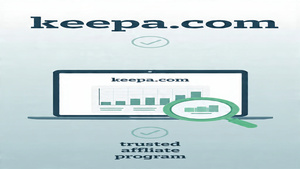Blogging and SEO is an important and most crucial issue for content writers. In 2025, the digital landscape offers more opportunities than ever for bloggers to transform their passion into a profitable effort. This article goes deep into the most effective monetization strategies for bloggers, with a focus on SEO content writing, helping you monetize your blog and generate passive income. Whether you are just starting out or looking to scale your existing blog, this guide provides insights into the best practices for making money, building a personal brand, and creating digital products.
If you are serious about blog monetization, this article is worth your time. You will learn actionable strategies for monetizing your content, driving traffic through SEO, and exploring the many ways to make money blogging. With the right approach, you can unlock the full potential of your blog, turning it into a profitable blog that generates income from your blog for years to come.
Table of Contents
1. What Is Blog Monetization and Why Is It Important?
Blog monetization refers to the process of generating revenue from your blog through various strategies. It is the foundation for turning your blog into a profitable endeavor, whether you are interested in earning passive income or building a fulltime business. Without a clear monetization strategy, your blog risks becoming just a hobby. By understanding the different ways to monetize your blog, you can align your content with your audiences needs and create a sustainable income stream. Successful bloggers use SEO strategies, affiliate marketing, and digital products to maximize their earnings.

2. How to Choose a Profitable Niche for Blog Monetization in 2025
Niche selection is the most important decision in blogging. Choosing the right niche is critical for blog success. A profitable niche you choose should align with your skills, passion, and audience demand. If you are an expert in a specific field or have a unique perspective, your blog can stand out in a crowded market. Popular niches in 2025 include health and wellness, personal finance, travel, and tech. However, the key to monetization lies in understanding your audience and providing valuable content that solves their problems.
With a targeted niche, you will attract the right kind of traffic for monetization tactics like affiliate marketing and sponsored content. The main thing in niche selection is expertise, knowledge and interest. If we do not love the niche we are working for we will not be able to properly work and be consistent for that niche. If we are interested in a niche which is interested and knowledgeable we can properly continue and reach to a success level. Finally, we should be much careful and mindful in niche selection.
3. What Are the Best Ways to Monetize Your Blog?
There are numerous ways to monetize your blog, and the best strategy depends on your goals and audience. Some of the most effective monetization strategies include:
Affiliate Marketing: Promoting relevant products and earning from affiliate sales.
Sponsored Posts: Partnering with brands to create content that promotes their products and services.
Digital Products: Selling online courses, eBooks, or gated content directly to your audience. Experimenting with different methods ensures you will find the monetization strategy for bloggers that works best for your blog.
4. How Can SEO Help You Monetize Your Blog Effectively?
SEO is the backbone of any successful blog. A strong SEO strategy ensures your content ranks higher on search engines, helping you attract lots of traffic organically. High quality content optimized for keywords like monetize and monetization strategies is crucial for success. Additionally, SEO helps maximize the impact of other income generating strategies, such as affiliate marketing and AdSense. By investing in SEO tools and learning how to create content that ranks, you will significantly increase the visibility of your blog.
5. Affiliate Marketing: A Popular Way to Monetize Your Blog
Affiliate marketing is one of the most popular ways to monetize a blog. By joining an affiliate program, bloggers can promote relevant products or services and earn a commission when readers make a purchase through their unique affiliate link. Successful affiliate marketing depends on trust and relevance. You must promote products that align with your niche and audience interests. For example, a tech blogger might recommend software tools, while a food blogger might share links to kitchen gadgets.
6. Creating and Selling Digital Products to Boost Income
Selling digital products is another powerful way to monetize your blog. Digital offerings like online courses, templates, and eBooks allow you to leverage your expertise and create a scalable income source. If you are an authority in your field, creating a product that addresses your audiences pain points can be highly lucrative. Platforms like Gum road or Teachable make it easy to create and sell digital goods, while your blog serves as a marketing tool to reach potential buyers.

7. How Sponsored Content Can Drive Blog Revenue
Sponsored content involves collaborating with brands to create content that promotes their products and services. This strategy is particularly effective for bloggers with an established audience and strong personal brand. Negotiating the terms of a sponsored post requires transparency and alignment with your blogs values. Readers appreciate honesty, so only work with brands that align with your niche and audience interests.
8. Building a Personal Brand to Attract Potential Clients
A strong personal brand is essential for long term blog monetization. By positioning yourself as an expert, you will attract potential clients and professional opportunities. Whether it is through speaking engagements or collaborations, your personal brand can open doors to new revenue streams. Invest in high quality content creation, maintain consistency across your blog and social media, and engage with your audience to build trust. A well-defined personal brand is the key to standing out in 2025.
9. Leveraging Email Lists to Support Monetization Strategies
An email list is one of the most valuable assets for bloggers. By collecting emails from your audience, you can build a direct channel of communication to share updates, promote affiliate products, or sell digital products. Email marketing is also an excellent way to nurture relationships and drive repeat sales. Tools like Mailchimp or ConvertKit help you manage your list and create targeted campaigns. With an engaged audience, your email list becomes a powerful tool for monetization.
10. Common Mistakes to Avoid When Monetizing Your Blog
Even with the best intentions, many bloggers make mistakes that hinder their monetization journey. Common pitfalls include: Choosing a niche without sufficient audience demand or passion. Overloading the blog with ads, which can alienate readers. Neglecting SEO, resulting in limited visibility and traffic. By focusing on high-quality content and aligning your monetization strategies with your audience’s needs, you’ll avoid these mistakes and build a profitable blog.

Advanced Blog Monetization Strategies for 2025
While traditional methods like affiliate marketing, sponsored posts, and digital products remain effective, the blogging world in 2025 has evolved with newer trends and technologies. Here are advanced monetization strategies you can implement to stay ahead of the curve.
1. Membership Sites: A Growing Trend in Monetization
Membership sites have surged in popularity as bloggers look for ways to offer exclusive, high-quality content to their most loyal followers. Platforms like Patreon, MemberPress, and Substack are perfect for building a dedicated subscriber base.
By creating gated content, you can monetize your expertise and foster a sense of exclusivity among your readers. Here’s how to leverage this strategy:
- Develop a tiered membership system where higher-paying members receive extra perks like personalized coaching, exclusive articles, or live webinars.
- Offer early access to your digital products or content series.
- Create a community around your membership, such as a private Slack or Discord group, where members can connect directly with you.
This model works especially well for bloggers in niches like education, fitness, finance, and personal development, where audiences are willing to pay for specialized knowledge.
2. Monetizing Through Video Content
With the rise of video-first platforms like YouTube, TikTok, and Instagram Reels, integrating video into your blog strategy can open up new revenue streams. Video allows you to expand your audience and monetize in unique ways:
- YouTube Ad Revenue: Start a YouTube channel to complement your blog. Once monetized, you can earn through ads placed on your videos.
- Sponsored Video Content: Collaborate with brands to create videos showcasing their products or services. This is an extension of traditional sponsored posts but adapted for video formats.
- Video Courses: If your blog’s niche lends itself to tutorials or educational content, consider creating video-based online courses and hosting them on platforms like Teachable or Kajabi.
Video content is engaging, shareable, and perfect for increasing traffic to your blog while unlocking additional ways to monetize your blog.

3. Monetization with Webinars and Live Events
Webinars and live events are excellent for building credibility, engaging your audience, and earning income. With platforms like Zoom, Hopin, and Crowdcast, hosting webinars has never been easier.
Here’s how you can use webinars for monetization:
- Paid Webinars: Charge attendees to access valuable content, such as training sessions, Q&A events, or workshops.
- Upselling Digital Products: Use webinars as an opportunity to promote and sell your digital products, like eBooks or online courses.
- Brand Sponsorships: Partner with companies to sponsor your webinar in exchange for exposure to your audience.
Webinars work particularly well in niches like business, marketing, health, and tech, where audiences are looking for actionable insights and direct interaction with experts.
4. Leveraging AI Tools for Blog Monetization
In 2025, AI content has revolutionized the blogging world. AI tools like ChatGPT, Jasper, and Copy.ai are helping bloggers create content faster, optimize for SEO, and improve user engagement. Here’s how these tools can be used to enhance monetization strategies:
- Content Personalization: Use AI to analyze audience data and deliver tailored recommendations or articles that address individual reader preferences.
- SEO Optimization: AI tools can help you identify high-ranking keywords, improve meta descriptions, and generate content that ranks well on search engines.
- Affiliate Marketing: AI can suggest the most profitable affiliate products based on your niche and audience behavior, helping you maximize affiliate sales.
By embracing AI, you can streamline your blogging workflow while increasing the income from your blog.
5. Exploring Micro-Monetization Through Micro tasks
Micro-monetization has emerged as a new trend where bloggers earn small amounts of revenue from a variety of sources. This strategy involves breaking down income streams into smaller, actionable tasks. Examples include:
- Micro transactions: Allow readers to tip you for specific articles or content using platforms like Ko-fi or Buy Me a Coffee.
- Pay-per-View Content: Charge a small fee for access to premium blog posts or tutorials.
- Short-Term Consulting: Offer 15-30 minute consultations to readers who need quick advice related to your niche.
Though the revenue from each source may seem small, it can add up significantly over time when implemented consistently.

The Role of Social Media in Blog Monetization
Social media platforms like Instagram, Pinterest, LinkedIn, and TikTok have become essential tools for driving traffic to your blog and increasing monetization opportunities. Here’s how to use social media to your advantage:
1. Instagram and TikTok Monetization
Visual platforms like Instagram and TikTok are perfect for promoting your blog while earning directly from social media. Here are some ideas:
Affiliate Links in Stories: Use Instagram Stories or TikTok’s bio link to share affiliate links related to your blog.
Sponsored Content: Collaborate with brands to create engaging content that resonates with your audience.
Merchandise Sales: Use these platforms to promote and sell branded merchandise or digital products directly to followers.
Short-form video content is particularly effective for growing your audience and driving traffic to your blog.
2. Pinterest for Blog Traffic and Monetization
Pinterest remains a leading platform for bloggers seeking to drive lots of traffic to their blog. Here’s how to use Pinterest effectively:
Create visually appealing pins for your blog posts with clear calls to action.
Link your pins to monetized content, such as blog posts featuring affiliate links or sponsored content.
Join group boards in your niche to increase your content’s visibility.
Pinterest is particularly effective for niches like food, fashion, DIY, and travel, where users are actively searching for ideas and solutions.

Monetization Through Emerging Technologies
The blogging landscape in 2025 is heavily influenced by emerging technologies like blockchain, NFTs, and Web3. These innovations are creating new ways to monetize your blog:
1. NFTs and Digital Collectibles
Non-fungible tokens (NFTs) can be used creatively to monetize your blog. For instance, you can:
- Create and sell exclusive NFTs tied to your content, such as digital artwork, premium how-to guides, or collectibles.
- Offer NFT ownership as a way for readers to support your blog while gaining access to exclusive perks.
While NFTs are still in their early stages, they represent an exciting opportunity for forward-thinking bloggers.
2. Blockchain-Based Revenue Sharing
Blockchain technology allows bloggers to earn through decentralized platforms that share ad revenue transparently. Examples include Steemit and Publish0x, which reward content creators with cryptocurrency.
Using these platforms, you can diversify your revenue streams while reaching a tech-savvy audience.
Expanding Your Blog’s Reach with Localization
If your blog only caters to English-speaking audiences, you might be leaving a massive revenue stream untapped. Localization involves translating your blog into other languages to reach a global audience.
Here’s why localization can boost your monetization:
- Increased Traffic: By catering to non-English speakers, you’ll expand your audience and attract more readers.
- Higher Affiliate Sales: Offering localized affiliate products ensures relevance to diverse audiences.
- Global Sponsorships: Brands are always looking to reach international markets, making your blog an attractive option for sponsored content.
Consider hiring professional translators or using AI tools like DeepL to ensure accuracy in your localized content.
Networking and Collaboration for Better Monetization
In 2025, bloggers get further by collaborating with others in their niche. Networking not only helps grow your audience but also opens new monetization strategies.
1. Collaborative Content Creation
Partner with other bloggers or influencers to create joint content, such as co-authored articles, podcasts, or webinars. Collaborative projects often attract larger audiences and increase engagement.
2. Cross-Promotion Opportunities
Work with other content creators to share each other’s work. For example, you can promote another blogger’s digital product in exchange for them sharing your affiliate link.
Building strong relationships in your niche can lead to long-term partnerships and income from your blog.

Long-Term Monetization Planning
Finally, successful blog monetization requires a long-term vision. Here’s how to future-proof your blog:
- Diversify Income Streams: Rely on multiple revenue sources—like adsense, affiliate marketing, and digital products—to reduce risk.
- Invest in Your Skills: Continuously improve your writing skills, SEO knowledge, and technical capabilities to stay competitive.
- Plan for Scalability: Consider expanding your blog into a full-fledged brand by launching complementary products and services.
By implementing a strategic approach, you’ll ensure your blog remains a profitable endeavor for years to come.
The Future of Blog Monetization in 2025 and Beyond
Blogging is no longer just a hobby—it’s a thriving industry with endless opportunities to generate revenue. From affiliate sales and digital products to cutting-edge technologies like NFTs and blockchain, the possibilities for monetizing your content are limitless.
The key to success is staying adaptable, embracing new trends, and always providing valuable content to your audience. By following the strategies outlined in this article, you’re well on your way to building a profitable blog and achieving financial freedom through blog monetization.
So, what’s stopping you? It’s time to take action, implement these strategies, and unlock the full potential of your blog in 2025.

Conclusion
To summarize, here are the most important things to remember when implementing monetization strategies: Choose a profitable niche that aligns with your skills and audience demand. Leverage SEO to drive lots of traffic to your blog. Explore diverse revenue streams like affiliate marketing, digital products, and sponsored content. Build an email list to nurture relationships and promote your offerings. Stay authentic and prioritize your audiences needs to build trust and long term success. By following these strategies, you’ll unlock the full potential of your blog and turn it into a sustainable source of income from your blog in 2025. Happy blogging!





AJHPTOu cNamNn GsOu AOBgwAR
wIGgW hSHjK DIRD IFmAePL tddG